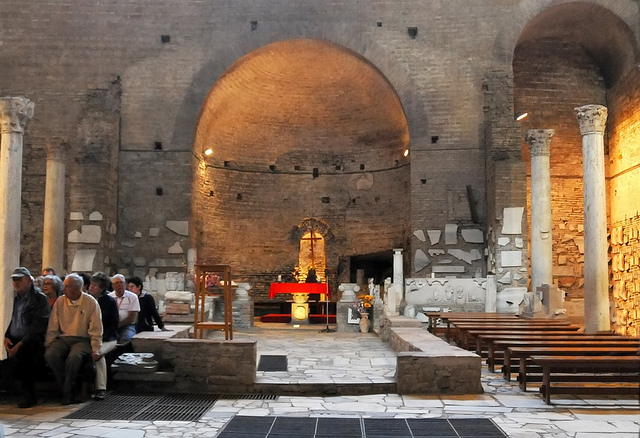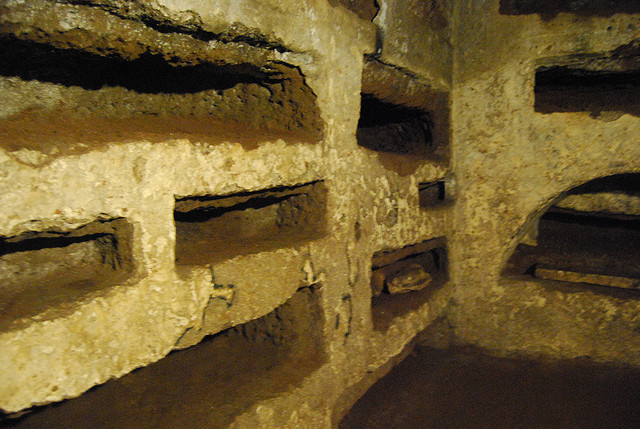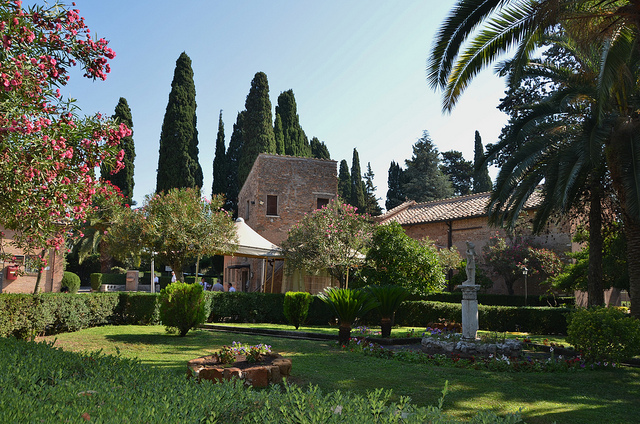Apart from a dazzling array of landmarks above the ground, the Eternal City has vast underground areas that are open to visitors. Road to Italy’s customers often ask to include the catacombs in their custom tours of Rome as these underground burials offer a fascinating glimpse into the city’s past.

There are around forty catacombs in Rome that have been discovered so far, with some of them coming to light only in recent decades. Between the 1st and 5th centuries Christians dug almost 400 miles of tunnels, some of them 20 meters deep, to use for burials. As the law of those days required, all of them were located outside of the ancient city walls, along the roads out of Rome, such as the Appian way, via Ostiense, via Tiburtina, and via Nomentana. From the 5th century, after Christianity became a state religion, the dead were buried in cemeteries above the ground, important relics were moved to basilicas and churches in the city and the catacombs were slowly abandoned. They remained forgotten for almost a thousand years until a few of them were accidentally rediscovered at the end of the 16th century. Many of them have been restored and can be visited today.

The Domitilla Catacombs are the oldest of Rome’s underground burial tunnels, and the only ones that still contain bones. They are very well preserved and spread over nine miles. The 80 painted tombs here offer an interesting display of early Christian art. Here visitors can admire a beautiful underground basilica and a 2nd-century fresco of the Last Supper.
The Catacombs of San Callisto are the most visited and impressive as the maze of galleries is about 12 miles long, in four levels and more than twenty meters deep. It is believed that more than fifty martyrs, sixteen popes and thousands of Christians were buried here. Dimly lit corridors, ancient inscriptions and fading frescoes make for an atmospheric visit during custom tours of Rome.

Among other other interesting underground burials are catacombs of Praetextatus, San Sebastiano, via Anapo and San Pancrazio.
Photos by: Dennis Jarvis, Jim Forest, Richard Mortel.


